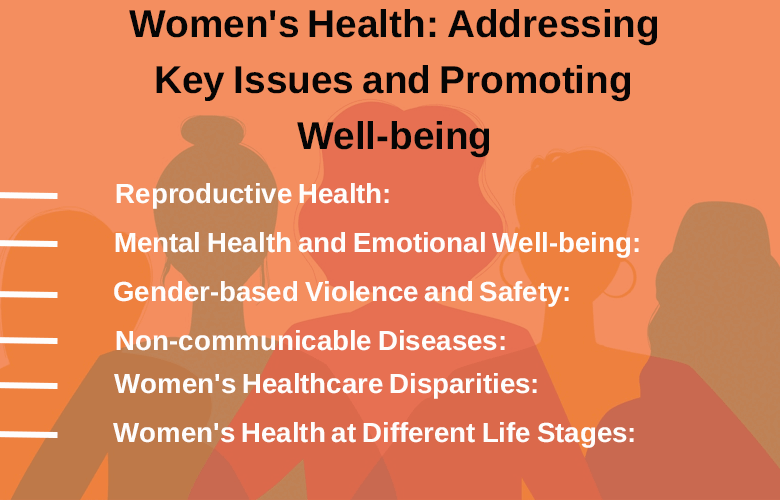Women’s health is a critical aspect of overall well-being, yet it is often overlooked or marginalized. From reproductive health to mental wellness, women face unique challenges and experiences that warrant special attention. This article explores key issues in women’s health and highlights the importance of addressing them to promote the well-being of women worldwide.
Reproductive Health:
Reproductive health is a fundamental aspect of women’s health. It encompasses various areas such as menstrual health, family planning, maternal care, and access to reproductive healthcare services. Highlighting the importance of comprehensive reproductive healthcare, this section discusses the need for education, awareness, and equitable access to reproductive health services for women of all backgrounds.
Mental Health and Emotional Well-being:
Mental health issues, including depression, anxiety, and eating disorders, affect women at higher rates compared to men. This section emphasizes the importance of destigmatizing mental health concerns, promoting mental wellness, and providing appropriate support and resources for women to maintain optimal emotional well-being.
Gender-based Violence and Safety:
Violence against women remains a significant concern globally. This section sheds light on the prevalence of gender-based violence, including domestic violence, sexual assault, and harassment. It underscores the need for raising awareness, creating safe spaces, and implementing comprehensive measures to prevent and address gender-based violence.
Non-communicable Diseases:
Non-communicable diseases such as cardiovascular diseases, cancer, and diabetes pose significant health risks for women. This section highlights the importance of early detection, preventive measures, and access to quality healthcare services to mitigate the impact of non-communicable diseases on women’s health.
Women’s Healthcare Disparities:
Socioeconomic factors, cultural norms, and systemic biases contribute to healthcare disparities faced by women. This section explores the disparities in healthcare access, quality, and outcomes experienced by marginalized women, emphasizing the need for equitable healthcare policies and interventions to bridge these gaps.
Women’s Health at Different Life Stages:
Women experience unique health challenges at different life stages, including adolescence, pregnancy, and menopause. This section discusses the specific health needs and concerns during these stages and emphasizes the importance of tailored healthcare approaches to meet women’s evolving requirements.
Conclusion:
Women’s health is a multifaceted and essential component of overall well-being. By addressing key issues such as reproductive health, mental well-being, gender-based violence, healthcare disparities, and specific life stage concerns, we can promote the health and well-being of women worldwide. It is crucial to prioritize women’s health, ensuring access to comprehensive healthcare, promoting awareness and education, and fostering a supportive and equitable environment for women to thrive. By doing so, we not only improve individual women’s lives but also create a healthier and more equitable society for all.
